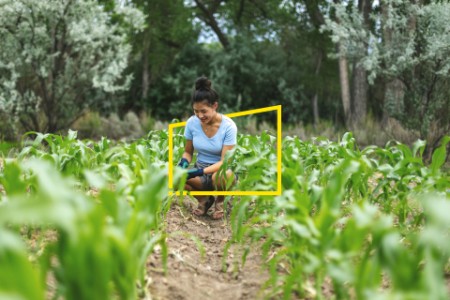EY Open Science Data Challenge
Don’t just predict the future. Build a better one.
The world is asking for change
Sustainability is the most pressing issue of our time. At EY, we believe that value-led sustainability is bigger than any one business. It’s everybody’s business.
Held annually, the EY Open Science Data Challenge produces new intellectual property (IP) that drives more intelligent, data-centered decisions to mitigating global sustainability issues.
Working together, we can scale our impact through data, artificial intelligence and technology to collectively build a sustainable future for society and the planet.
Aligned with our purpose of building a better working world and working in conjunction with the EY Ripples program, EY developed this initiative to support the UN Sustainable Development Goals and contribute through the application of data science. As the availability of data has grown exponentially, so has the passion and interest in participating in the challenge. Together, we have tackled topics such as detecting and managing wild fires, protecting biodiversity, and solving world hunger.
Are you ready for the 2024 challenge?
Building coastal resilience
Because some of the most vulnerable areas to climate change are low-lying coastal zones in developing countries and small island states, we are centering the 2024 challenge around the topic of coastal resilience and nature-based solutions to climate change in data-poor environments.
The primary goal of the challenge will be to develop baseline data for coastal resilience in data-poor environments through land classification models using satellite data and machine learning algorithms. The secondary goal of this challenge is to further combine these models with topographic, population and socioeconomic data to model coastal vulnerability and climate risk, and to assess storm damage after the impact of tropical cyclones.
Cash prizes
Not only will participants’ models help make a difference in changing the world, the best and brightest ideas are eligible for cash prizes up to $10,000 and attendance at a celebration in Athens, Greece in July 2024.
Who can enter
Any university student or early-career professional with less than two years of experience can join the challenge. It is also open to EY employees.
The team
Getting started
This year’s challenge has two components:
Challenge 1: Build a system to detect fire-edges in infrared linescan images
Challenge 2: Build a system to map the location and behaviour of fire-edges in satellite images
Both challenges are designed to help streamline the process of bushfire mapping for bushfire authorities. Using data science and advanced analytic tools, your task is to map the location of the fires based on observations in the provided data. Once you have submitted your results, you can continue to refine your model over time to achieve a higher score.
Who can enter
Any university student with an interest in data science can enter and participate. If you have less than two years of professional experience then you can also join the Challenge, but you will need to pay to use Azure.
How to enter
The Challenge is open from 24 March until 15 June 2021 and you can join at any time.
Registrations are already open and you can enrol here.
You can enter the challenge as an individual or as a team (maximum four people).
You can make multiple submissions (maximum one per day) with your account before the challenge closes.
Submission requirements and evaluation
Note that participants are invited to use whatever technologies and/or methodologies they feel would be most appropriate for the challenge at hand. Your results must be submitted on the platform.
If you are selected as a finalist, you will be provided instructions on how to submit your results and supporting documentation, which should include an explanation of methodologies and algorithms used, along with any code leveraged, assumptions made and any insights identified.
Finalists will also be required to submit a video presentation of their work. Evaluation criteria will be shared once the finalists are announced.
You will also be required to provide any code and external datasets leveraged, so be sure you have used only publicly available data and that your code and methodology is robust and repeatable.
Deadline
All submissions must be made by midnight, 15 June 2021 (GMT). The top 60 global finalists will be notified and required to present a video with their findings, methodologies and assumptions, and provide any artefacts such as code base to the judges as requested. Finalists will also be required to attend the global virtual awards ceremony in the first half of July 2021.


